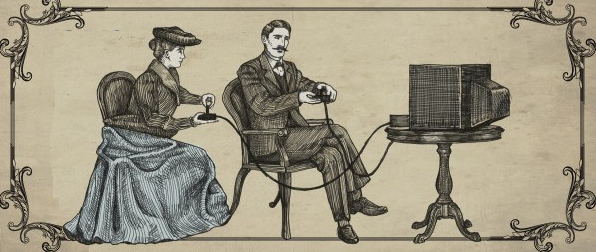 If you’ve been living under a rock for the last few months (or simply don’t care) you wouldn’t know that this Formula One season has breathed new life into the greatest motorsport on Earth. In a similar fashion, Formula One games over the last few years have been given a fresh set of legs by the consistently great Codemasters once they started making annualised entries in the franchise from 2010 onwards, culminating in the excellent homage to racing nostalgia that was F1 2013: Classic Edition.
If you’ve been living under a rock for the last few months (or simply don’t care) you wouldn’t know that this Formula One season has breathed new life into the greatest motorsport on Earth. In a similar fashion, Formula One games over the last few years have been given a fresh set of legs by the consistently great Codemasters once they started making annualised entries in the franchise from 2010 onwards, culminating in the excellent homage to racing nostalgia that was F1 2013: Classic Edition.
But despite this amazing revitalisation of video game representation of the sport, largely as a result of the fresh set of eyes Codies brought to the franchise, really nothing has changed to make the games appeal to all but the most feverous of Formula One fans. It is an extremely complicated and technical sport done justice by extremely difficult and technical games. The developers have perfected the exhilaration driving in excess of 300 km/h, but if you’re not a fan of high speed circuit racing, well tough titties, these games just aren’t for you.
That really is a shame because as documentaries and films like Senna and Rush respectively show, Formula One as a sport is as much about the off-track rivalries as the racing itself. Whether it be Senna and Prost, Lauder and Hunt or Hamilton and Alonso, the personalities and feuds are a big part of what makes Formula One so exciting to follow. The great shame though is that Formula video games, although flirting with the idea, haven’t really paid that much attention to building in mechanics that try and replicate the thrill and excitement that rivalries bring to the sport.
There is hope though, and certainly precedent for broadening the scope for what it means to be a sports game. Football games for example have evolved to incorporate simulations of teamwork and team chemistry, player morale, and team management more broadly. You could have two of the best team in the world on paper, but if they’re all selfish ball-hogs, you’ll likely never achieve the greatness that theoretically you should. In some ways it’s about adding a regimented level of randomness to games that otherwise just about having the highest numbers. Now this is nothing we haven’t seen before, after all Football Manager (and even Player Manager before that) has done this for years. But incorporating it into a genre that has traditionally hasn’t been able to – or perhaps just hasn’t – left room for it is an exciting prospect that opens up new and exciting ways to infuse aspects real life into video game representations of our favourite sports.
But there is something a little more personal about Formula One than other sports. When Sebastian Vettel disobeyed team orders to overtake teammate Mark Webber at the Malaysian Grand Prix in Season 2013, it was the result of of tension built up over a number of races, across a number of years. With the often larger-than-life personalities that populate the Formula One is ripe for the picking to experiment with incorporating aspects of relationship simulation. Imagine if tensions between teammates led to erratic behaviour on track or overly aggressive entry into a corner, or the politics off-track had a tangible impact on your on-track performance. What if the competition between engineering teams led to mistakes being made, or advantages being gained? The implementation of post-race interviews in the series thus far has left a lot to be desired, but by integrating them into a wider ‘social-link’ system, they could form an integral and indispensable part of your pathway through the game.
All of this could lead to something bigger and more grand than just the thrills of the rubber meeting the road. Just like the unique relationship aspects of the Persona and Fire Emblem series opened up those genres to a wider audience, by rethinking how players progress through the career mode Formula One games, the stewards of the Formula One licence could grow its player base into more of a mainstream hit, and certainly beyond those that religiously follow the sport.
Formula One has always been the chess of the racing world, with races being won or lost on tyre choice and pit strategy, and the precision of the drivers of these mechanical marvels. On the surface F1 is the greatest test of human ingenuity and athleticism. But behind the curtain it is a soap opera soaked in testosterone and petrol. And in some ways that’s what makes Formula One so intriguing. It’s time for game developers to capture that magic and open the world of Formula One up to a brand new audience that can’t see beyond the motorsport label. That wouldn’t just be great for Codemasters, it would be great for a sport that over the past decade or so has waned in popularity.


